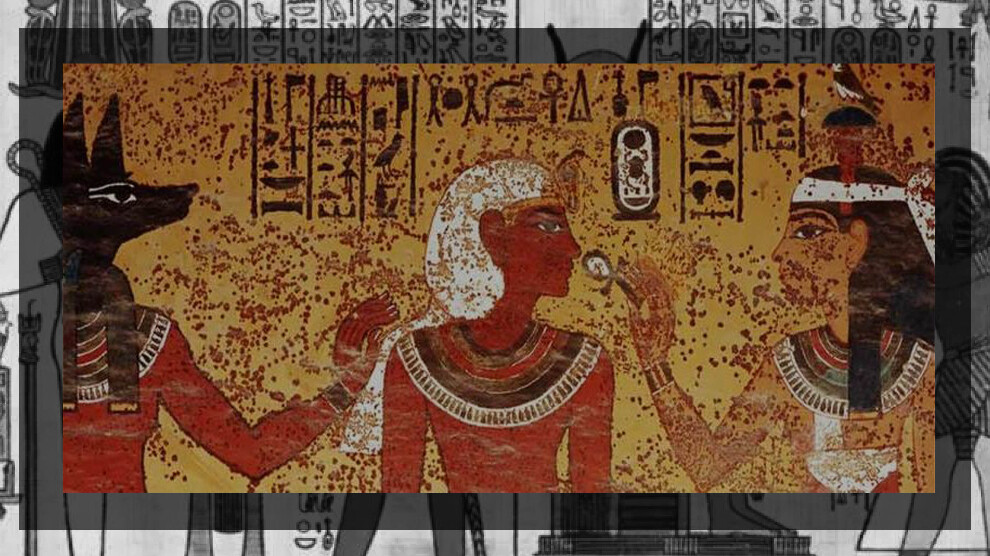Egyptian women under patriarchal mentality-2
Egyptian women in post-pharaoh civilizations

News Center - The position of women in Egypt was affected after the mixing of Egyptian civilization with other civilizations, in addition to the major change in the structure of society that started with the emergence of the divine religions and the strict application of their teachings regarding women and the family, and thus discrimination began to appear between men and women in the most ancient and most distinguished civilization for women, Among the most prominent periods affecting the Egyptian civilization and the status of women are as follows;
1- Ptolemaic era:
Egypt was only slightly affected by the traditions of the Greeks, so the women retained their full rights and continued their education, freedom, and equality along with the men before entering Egypt.
Another influence began to cast a shadow over Egyptian society, the Jewish religion spread after it was embraced by a number of Egyptians, some historians estimated that about 10% of the population settled mainly in the areas near Alexandria. The Jewish religion was greatly influenced by ancient Egyptian civilizations and the earlier prophets such as Joseph.
Although there is no biography of Moses, the distinction between the gender is confirmed, but the teachings and legislation of the Old testament separated men and women and were applied to everyone who embraced Judaism, those teachings combined positive and negative applied the maternal law that is considered the mother as the basis of the family and a Jew is not a Jew unless he/she is born to a Jewish mother.
The women also lose the right to own property and inheritance, except in the case that the husbands die without having children to inherit. And the women do not have the right to choose a new husband, but they must not marry a man outside the tribe to ensure the inheritance.
The concept of honor associated with virginity began to appear and emphasize the virginity of the girls without focusing on the relationships of the men.
In Jewish legislation that came thousands of years ago, a man who rapes an unmarried girl is forced to marry her and not divorce her throughout his life, this situation is a major problem that worries women and human rights; Because it prejudices the right of a woman who is forced to marry her rapist by virtue of customs and traditions supported by the laws of countries.
2- The Roman era:
The Roman era began with the elimination of the Ptolemaists and the suicide of Queen Cleopatra and extended from 31 BC to 395 AD, Egypt was not ruled during this period by any queen because Egypt became a province of the Roman Empire.
The Egyptian society was affected by the way Romans treated women and one of the most prominent of those changes was that women lost their right to education and they lost much equality with men before the law and authority of men began to appear in Egyptian society.
The women had no role in politics, they withdrew all their powers in the temple and were stripped of their religious positions after men monopolized the finest religious positions, and their rights were limited to managing their properties.
After the women were the lady of Egypt and their idols, they became just a housewife and they were able to work outside as a midwife, a decorator, a nurse, and a servant, as many women worked as farmers and it is known that those who worked in the family land did not take any pay.
Rome could not radically change the existing traditions in Egypt because its main goals were the seizure of the country's goods from agricultural crops, mineral wealth, and others. The ancient Egyptians showed resistance to the customs coming to their society, and in that way, the women preserved some of their rights and the Jews kept their teachings.
The most prominent influence that still exists until now is the religious influence and because Egypt, as we said, was the cradle of the Jewish religion, the teachings of the Jewish religion are among the most prominent influences on the life of Egyptian women. The Christian religion entered Egypt in the middle of the first century; and Egypt was infested with a large number of religions, including ancient Pharaonic, Roman, and Judaism, so owners of these religions were persecuted the converters of Christianity, but they grew and spread despite that, especially after the fall of the Western Roman Empire in the fifteenth century.
Judaism and Christianity were affected by the existing cultures that exist in Egypt, the Greek, and Roman cultures. The writing of the Gospel after the death of Jesus opened the door to discuss gender discrimination and some customs and traditions were not from its origin society.
Tomorrow: Islamic civilization in Egypt
